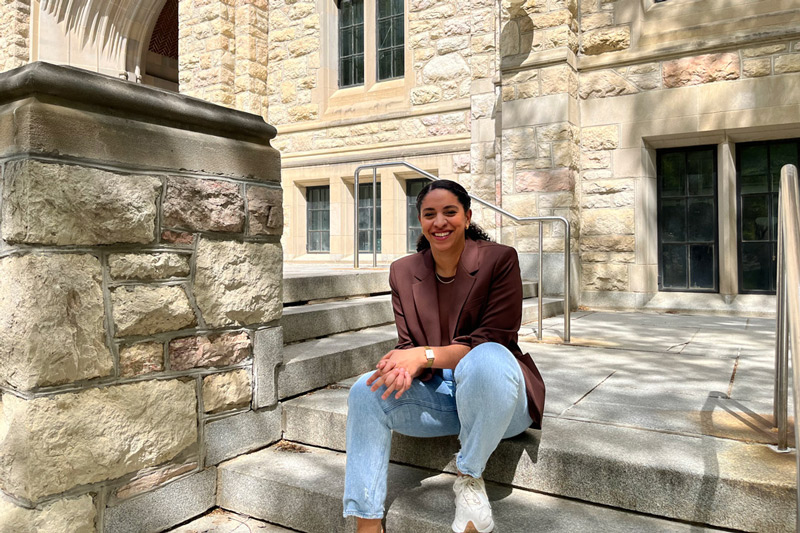
USask alumna uses WGST experience to offer education
Natalya Mason utilizes education in her career as a sexual health educator
By Breanna PochipinskiNatalya Mason (BA’14, MA’21) believes that the Women's and Gender Studies (WGST) program at the University of Saskatchewan nurtures critical thinkers who are essential in today’s world.
Who knew Mason's post-secondary education start would be in front of her the whole time growing up in Saskatoon?
First-generation university graduate, Mason was destined to be a USask alumna from a young age.
“My mom used to point the university out every time we drove past and say, ‘You're going to go there one day.’ ” said Mason, a social worker and sexual health educator at Saskatoon Sexual Health.
She uses what she learned from WGST in her professional and personal life and believes in the relevance and importance of the program to society.
“I’m really grateful to the program,” Mason said. “Anyone who is interested in diversity and equity and making the world a better place should enrol in a WGST course … it’s really valuable.”
When Mason first attended USask for her undergraduate degree she focused on psychology and WGST. She later studied at the University of Regina to obtain a Bachelor of Social Work degree.
Amid her second degree, Mason was offered a graduate student position at USask to obtain a Master of Arts in WGST. Through her research, she realized her purpose was to educate the public about sexual health.
“In my WGST courses, we spent so much time focusing on oppression or systems that benefit certain people ... using that information to be a good sex-ed teacher to provide high-quality sexual health education was an effective way at preventing harm in the future.”
The WGST program celebrated its 30th anniversary in 2021 and held a brunch to celebrate in May. At the brunch, Mason witnessed the reach of the WGST program.
“I was surprised to see how far reaching the impacts of the grads in the room went, everyone in the room had a different sphere where they were working.”
The lasting impact that the WGST program has on alumni was illuminated during the brunch. In addition to career impact, the program shapes and broadens worldviews and covers subjects such as critical race, disability and queer theories.
“WGST is the first place where I had exposure to ideas around queerness – queer theory is a really critical component of the program.”
As June is pride month in many countries including Canada, programs and courses that formally teach students about pride month and queerness are important.
“One of the biggest things that women's and gender studies taught me was to really value the collective and value community,” she said.
In the WGST program, topics and discussions are shared with the knowledge that all individuals have a voice to be heard, including the 2SLGBTQIA+ and BiPOC communities.
“Truthfully, I think that the WGST program is one of the most important programs on campus,” she said. “There’s so much work being done right now around diversity, equity, and inclusion which are foundational to women's and gender studies.”
To learn more about the Women's and Gender Studies Program: https://admissions.usask.ca/womens-gender-studies.php
To find out how to participate in Pride Month and about Pride on campus: https://leadership.usask.ca/events/pride.php

